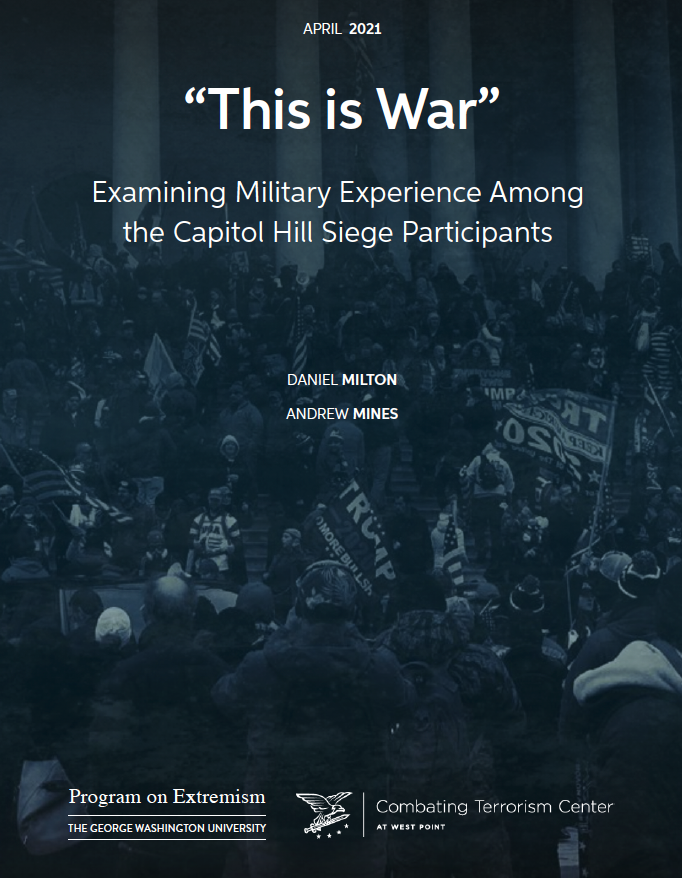This report explores military experience among those arrested in the January 6 Capitol incident. While the Capitol Hill siege is but one event in a longer history of military populations’ involvement in extremism, it offers a useful snapshot through which we can examine the scale and diversity of the issue. We present findings for a number of metrics accordingly and provide some considerations for military officials, the general public, and policymakers. 43 of 357 individuals (12%) charged in federal court for their role in the Capitol Hill siege had some form of military experience. Of these 43 individuals, the vast majority (93%) were veterans and not currently serving in an Active Duty, reservist, or Guard status. Individuals with military experience had, on average, 9 years of service experience. The range of experience was substantial, from 3 years on the low end to 25 years on the high end. Over one-quarter were commissioned officers, and 44% deployed at least once. Around one-third joined before 2000, and around 50% left the service over a decade ago. 37% of individuals with military experience had affiliations to domestic violent extremist (DVE) organizations like the Oath Keepers and the Proud Boys, around four times more likely to be a part of such groups than those without military experience. Some individuals with military experience held leadership positions in these organizations. Many others, however, arrived at the Capitol either in organized clusters or alone.
Recommendations
- Based on our findings, we recommend that the Departments of Defense and Veterans Affairs lead a new combined task force to confront and combat extremism in the military community. The task force should have representation from a number of stakeholders including Congressional oversight bodies, military and federal judicial and investigative agencies, and civilian experts who have studied and piloted counter-extremism programming.
- We also recommend that the new task force collect information on criminal and non-criminal extremism-related incidents among active duty service members and veterans in a centralized, internal documentation system. The task force should leverage its findings and resources to help refine and expand current trainings and briefings related to extremism, and ensure that veterans are reached by these programs as much as possible.
- Finally, we recommend that the task force disseminate its findings through a joint Inspectors General report to Congress and the public.


